Interview: Wannabe Magazine
Serbia’s award-winning Wannabe Magazine recently approached W!LD RooSTeR (Marcus Agar)for an extensive interview. The interview, by Uroš Pajović, not only discussed the reasons for writing a blog on Serbia, it also covered the basis for a growing interest in the Western Balkans, impressions of time spent in the region, as well as personal opinions on what could lay ahead for young people in Serbia’s optimistic future.
 This in-depth and wide ranging interview launched a weekly series of features in Wannabe Magazine, where W!LD RooSTeR provides a personal perspective on ordinary life in Serbia. The Serbian interview is here, with the original interview printed in English below:
This in-depth and wide ranging interview launched a weekly series of features in Wannabe Magazine, where W!LD RooSTeR provides a personal perspective on ordinary life in Serbia. The Serbian interview is here, with the original interview printed in English below:
WM: You have been writing about ex-Yugoslav countries for quite a while now. Where does your interest in these countries come from?
WR: My interest in Serbia and the western Balkan region started five years ago when I was working in China. I met two guys, Nebojša from Banja Luka and Gjorgi from Skopje. We spent long evenings talking about their lives and experiences, and I grew increasingly interested in learning more about them.
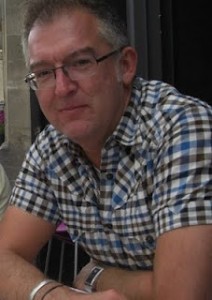 Shortly after returning home, I took up an invitation to spend two weeks in Banja Luka, making many new friends, seeing some of the incredible countryside in the area, enjoying new foods, and generally getting to know people and their lives. A few weeks later and I was in Skopje. It all sprang from there, really. I was hooked.
Shortly after returning home, I took up an invitation to spend two weeks in Banja Luka, making many new friends, seeing some of the incredible countryside in the area, enjoying new foods, and generally getting to know people and their lives. A few weeks later and I was in Skopje. It all sprang from there, really. I was hooked.
The Balkans captivated me five years ago and I have been returning ever since. I have visited nearly twenty times, traveling extensively in Bosnia, Croatia, Montenegro, Macedonia and, of course, Serbia. I enjoy the richness of the culture and value many great friends there. They have shown a warm welcome and I’ve learned a great deal about the history and people of the region.
What started as an interest, developed into a passion, and has grown into a lasting relationship.
WM: There’s a belief among people from ex-Yugoslavia that the Balkans is a “barrel of gunpowder”. This metaphor was created by artists while younger generations still have hope that things are getting better and that the Balkans will soon be a nice place to live. What do you think of it?
WR: The region’s history has shown that this phrase is partly based in reality and it does contribute to the international opinion of the Balkans. It isn’t good to get bogged down by your stereotypes, though, or they can be self-perpetuating.
In Belgrade, I have been heartened to observe a strong, positive feeling of hope and possibility among young people. It seems that there is a growing sense of opportunity in the air, a chance for change, and they are realising that it is theirs to take. That can only be a good thing. I am planning to work with businesses, youth organisations and NGOs in Serbia to ensure that young people here can seize their opportunities.
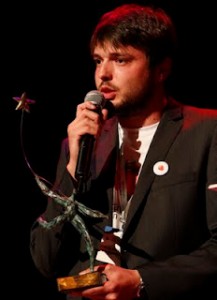 A prime example of an enterprising young person making his own chances in life is my good friend Miloš Milisavljević, head ofStrawberry Energy. He recently fronted a talented team who beat off European big business to win a prestigious EU award for the solar phone charger they had developed from scratch. Miloš had an unswerving focus on what could be achieved rather than being blinded by the hurdles in front of him. Other young people should replicate his efforts. There are so many creative people in Belgrade who are making it happen for themselves. They realise that nobody is going to do it for them, they have to create their own opportunities. That positive attitude is infectious and should be supported by business and government. Miloš is a pioneer, a thought leader, in the tradition ofTesla. The entrepreneurial spirit should be the future of Serbia.
A prime example of an enterprising young person making his own chances in life is my good friend Miloš Milisavljević, head ofStrawberry Energy. He recently fronted a talented team who beat off European big business to win a prestigious EU award for the solar phone charger they had developed from scratch. Miloš had an unswerving focus on what could be achieved rather than being blinded by the hurdles in front of him. Other young people should replicate his efforts. There are so many creative people in Belgrade who are making it happen for themselves. They realise that nobody is going to do it for them, they have to create their own opportunities. That positive attitude is infectious and should be supported by business and government. Miloš is a pioneer, a thought leader, in the tradition ofTesla. The entrepreneurial spirit should be the future of Serbia.
When I travel beyond Serbia’s borders, for example to Republika Srpska, I see people whose dreams are strangled by their resignation to their own beliefs that things can’t change. They might have good reason for that, but it is troubling to see them held back by their acceptance of the status quo. Serbia has moved beyond that and its young people have embraced the future. However, there also I have met people who are working hard to make a better future for themselves.
WM: I noticed you talked about Serbia and ex-Yugoslavia with various people. Who left the best impression on you and who defined the life here as it really is?
WR: As a journalist, I speak with people closest to the story. I have found that the same approach also works best when trying to get under the skin of a country. I have been lucky enough to develop a wide range of friendships in Serbia, and they have opened my eyes to what really matters to people here. Building close contact and mutual trust are the best ways to get to know a person, or a country for that matter.
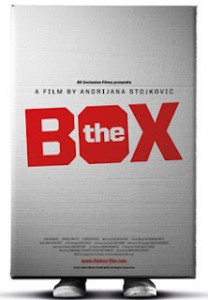 I am working with some really creative Serbian film directors, helping to promote their films internationally and securing additional support. They have been especially interesting to me, opening my eyes to new perspectives on a Serbia that is hard to discover when you haven’t lived there and was part of recent developments. They have a fresh perspective, a tangential view, on Serbia’s recent history and the lasting effects of those years. That is captivating for me.
I am working with some really creative Serbian film directors, helping to promote their films internationally and securing additional support. They have been especially interesting to me, opening my eyes to new perspectives on a Serbia that is hard to discover when you haven’t lived there and was part of recent developments. They have a fresh perspective, a tangential view, on Serbia’s recent history and the lasting effects of those years. That is captivating for me.
Andrijana Stojković has directed an excellent film,The Box, which we are working on now. It is doing the rounds of film festivals and will premiere in Belgrade in the Autumn. This film is set in the 1990s, as UN sanctions are taking hold, Red Star Belgrade fans are unable to watch their team host international games, and the diplomatic corps is fleeing the sinking ship.
It is a fascinating and humorous look at life through the eyes of a group of young people who feel their futures have been amputated. Rather than crumple in defeat, they are very creative in their own personal solutions. I recognise that ingenuity in my Serb friends today, that attitude of not giving in. Used in the right way, that is an incredible strength.
I get along very well with Stevan Filipovic, who directed the incredible film Šišanje (Skinning).He has an eye-opening opinion on life in Serbia today and has exploded many myths about its history. His perspective on what he sees as Serbia’s problems and personality, hang-ups and issues is fascinating to me. He speaks about things that often go unsaid in Serbia. I think he is instantly refreshing and I hope the debate can extend more widely.
WM: One of your interviewees, director Mila Turajlić, told you: Serbia is schizophrenic. What do you think about that? Do all of our problems really come from the fact that there’s no consensus about our past and our history?
WR: Serbia is at a crossroads of cultures, religions and continents. That position has been at the heart of a lot of the region’s issues. People in Serbia have a strong sense of national pride and, while that is a good thing, it can be abused by certain elements that choose to cherry-pick from the past to steer their future. Usually those are the people who are most introspective and they can stifle the shoots of opportunity.
More countries in Europe are currently questioning their collectively accepted view on their own past, realising it doesn’t fit the current understanding of their identity. As national communities develop, their view of who they are and their past constantly get questioned. In Western Europe for example, we struggle with developing into multi-cultural societies and the recent tragedy in Norway is a sad example of the tense emotions that are involved.
I therefore believe it is only natural for the countries of the former Yugoslavia, as they develop into new national societies, to question their identity and a past that is still dominated not only by the troubles in the nineties but the self image of people from the former Yugoslavia.
WM: When you come to Serbia and meet people and talk to them, do you have the impression that the domination of wars in our past has put a mark on us?
WR: In my travels throughout the region I have noticed that people in each country of the region have a very distinctive relationship with their past. Obviously the impact was felt quite differently in Belgrade, Banja Luka, Dubrovnik and Sarajevo, and people living outside the cities had a very different experience, too. Even within Serb regions, the greatly differing reactions to recent actions and arrests highlight how some people have found it easier to move on that others.
Obviously Serbia has had a troubled past, with recent decades being especially fresh is people’s minds. The troubles in the 1990s have undoubtedly left their scars. People either lived through those times or grew up with the effects all around them. It is understandable that people deal with that in different ways and the influence that has on everything cannot be underrated. It becomes personal and people often view history from that perspective. Serbia’s political parties have not always helped, themselves behaving quite erratically in their attempts to play to the audience on both sides of the fence.
Serbs can have a tendency to anticipate a negative in any comment. You have had your fingers burned by some unjust slurs but that does not mean that there is good reason to assume that everyone is out to get you all the time.
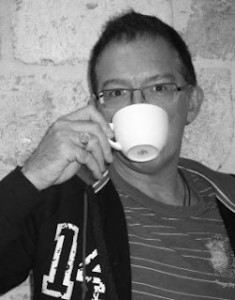 It is recognised that this sort of mentality can be especially evident within certain elements of the diaspora of any country. They are widely known to be more headstrong than those in their originating homeland. It is all too common for people of a diaspora to be overly defensive and hear accusation in every comment. That can become a ‘cry wolf’ situation: the more they shout false claims, the less weight is carried by any valid assertions of unfair treatment.
It is recognised that this sort of mentality can be especially evident within certain elements of the diaspora of any country. They are widely known to be more headstrong than those in their originating homeland. It is all too common for people of a diaspora to be overly defensive and hear accusation in every comment. That can become a ‘cry wolf’ situation: the more they shout false claims, the less weight is carried by any valid assertions of unfair treatment.
I have met many people who are too young to have been part of the situation in the nineties. They were still at school. Although they had nothing to do with any atrocities, it is clear to me that they are still deeply affected and are finding ways to come to terms with that. This is especially evident in Rupublika Srpska, where they were directly affected by the fighting in their region.
I believe politicians and media can play an important moral role in helping people acknowledge their collective past, take responsibility for it and move on. German politicians took on that responsibility after Word War Two and as a result Germany now is a strong country at peace with itself and its neighbours. In such cases, denial is not an option.
People need to look in the mirror and face their own truths, learn to accept themselves and their realities, if they are to have productive relationships of mutual trust and respect. Serbia should accept that it has many friends and partners beyond its borders: People who can look with fresh eyes at a country with a great deal to offer; people without any ulterior motive or prejudiced ideas; people who can help Serbia achieve its potential. Serbian literature is full of fairy tales and dreamers. Serbia needs to remind itself that it is good to dream.
WM: Is the road to Europe finally clear for Serbia after Mladić arrest?
WR: Personally, I hope that the arrests of Mladić and Hadzić will shut the door on the past and open a new future for Serbia, ideally as an equal partner within the European Union. But joining the EU is only one possible future for Serbia. Countries such as Switzerland and Norway have shown that you can have strength without being a member but by adopting many of the EU’s key strategies and policies. Obviously, it will come down to whether there is sufficient support in Serbia for a future within the EU. The people should decide.
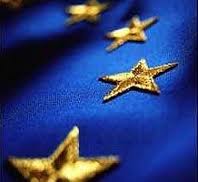 It is my opinion that Serbia’s future lies in better relations and improved trade beyond its borders and if Serbia choses not to take this path, it could be at risk of being a lone island – and the age of isolationism is over. You can only make a contribution to any debate if you have a seat at the table. Don’t forget, being a member of the EU does not mean that your existing relationships should become any less relevant to you. It has become clear that politicians from all sides have been playing the EU card for their own gains but they need to realise they are gambling with the future of the Serbian people.
It is my opinion that Serbia’s future lies in better relations and improved trade beyond its borders and if Serbia choses not to take this path, it could be at risk of being a lone island – and the age of isolationism is over. You can only make a contribution to any debate if you have a seat at the table. Don’t forget, being a member of the EU does not mean that your existing relationships should become any less relevant to you. It has become clear that politicians from all sides have been playing the EU card for their own gains but they need to realise they are gambling with the future of the Serbian people.
If Serbia progresses down the road to full EU membership, the current states must look at Serbia on its merits and recognise that it has done what was asked of it by the ICTY. Also, it should not penalise Serbia for the EU’s own mistake of allowing entry for countries that were poorly prepared. If Serbia can meet the necessary standards in policing, anti-corruption etc, then it should be welcomed as a full member.
Britain has had a mixed relationship with the EU. In the eighties we fought to protect our sovereignty and we are not in the Euro. There are things we do not agree on and we have various opt-outs. It is perfectly reasonable to be an EU member but to steer your own ship.
WM: It seems you have a rather kind attitude towards Serbia, which is, unfortunately, very rare nowadays. Under what circumstances have you visited our country and what were your impressions?
WR: I approach Serbia with an open mind, an unbiased opinion and a warm heart. Indeed, I’ve found that is the best way to approach most things in life. I treat Serbia the same as other countries and do not see why people should expect this to be any different. My experience is that, in reality, few people outside Serbia have a negative predisposition to your country. That is a misconception that needs to be laid to rest.
I started my blog, Wild Rooster for exactly that reason, to broaden awareness and increase understanding of the many positive aspects to contemporary life in Serbia. Too few people outside of Serbia are aware of the good stories generated here. I want to turn the spotlight on those people who are making positive contributions to arts, culture and sport in Serbia and encourage people to look again at a fascinating country. I hope that I can open doors for people to learn something new about a modern country with a fascinating history, a rich culture and very welcoming people.
I connect with my network of contacts to secure features that I think will be of relevance to the readership. My background is as a journalist and I communicate as a journalist, not as a commentator. I engage with an audience by sharing facts, conveying viewpoints, and providing positioning and integrity via interviews with people who are making their mark on Serbian culture.
 Don’t get me wrong: This is not a vanity project to position myself as some sort of expert, or portray myself as a saviour of the nation’s image. That is not the raison d’être for my blog. I report on Serbian culture and give my opinions when they are relevant, such as reviews. Anyway, I must be doing something right because I receive a great many emails from people thanking me for what I’m doing.
Don’t get me wrong: This is not a vanity project to position myself as some sort of expert, or portray myself as a saviour of the nation’s image. That is not the raison d’être for my blog. I report on Serbian culture and give my opinions when they are relevant, such as reviews. Anyway, I must be doing something right because I receive a great many emails from people thanking me for what I’m doing.
Now that I am looking at doing more business in Serbia, I am viewing the country through a different lens. I coach businesses on how to enhance their public profile and engage more effectively with their employees and stakeholders. They don’t need a massive budget; even small efforts can make a difference if it is part of a programme. This is a service I will provide to SMEs in Serbia, as business prepares to compete in Europe.
WM: What do you especially like about Serbia and what is it that you don’t?
WR: I have been fortunate to visit Serbia at the invitation of friends who live here. I have felt a warm welcome in people’s homes, invited to share their lives for a few days. I came to meet some friends and left with many more. I have been bowled over by the level of hospitality and that has made all the difference to my impressions and experiences here.
No matter how many times I come back, it is always so heartwarming to receive such a great welcome. Serbs are justifiably renowned for their warmth of welcome. They go out of their way to make you feel at home in Serbia. Of course, I’ve been fed like a king and coaxed into sharing bucket loads of homemade rakija!
I really enjoy Serbian food and its one of the things I look forward to when I return. In fact, I have mastered a few simple dishes at home and we eat Serbian food quite regularly. I am pretty good at ajvar and make a really tasty riblja čorba, which I often serve to friends.Gibanica is still a challenge and I haven’t braved kajmak yet.
I don’t eat meat but I can’t say that I have had a problem. Thankfully, I love fish and, apart from some of the most incredible vegetables I have ever tasted, Balkan cuisine is rich in fresh river fish. I don’t get much chance to eat pike, perch or carp in Britain – we’re an island hooked on sea fish – so it’s a rare treat for me when I eat out in Serbia or Bosnia.
I have seen that Serbia is a fascinating country of diverse countryside, with stunning mountains and rivers as well as great cities, towns and monasteries. The nightlife in Belgrade is notoriously good, and summer on the river is something not to be missed. In that sense, it has a lot to offer any visitor, which is one reason why tourism figures are rising at a very healthy rate.
WM: How do you feel in Belgrade?
WR: Belgrade is a very relaxing city for me, which may perhaps be surprising for people living in the city. It has an energy, a buzz, that makes me feel at home. In that sense, it is similar to London. I find it easy to navigate and very quickly felt at ease here. The streets are clean and safe, and you can always find someone to talk to in a bar. You’re never alone in Belgrade.
I spent last New Year’s Eve in Belgrade and that was such an incredible week of partying and celebration. I believe I was very fortunate to experience the beauty of Belgrade in the depth of winter. Miss Serbia 2010 Milica Jelić and Miss Serbia 2009 Jelena Marković are two of my best friends in Belgrade. They were incredible hosts during my New Year trip. What better guides to a city and its nightlife than Milica and Jelena?
Clearly, the city really comes alive in the summer. Belgrade’s busy street cafes, splavs andparks are full with stylish young people enjoying themselves as if there’s no tomorrow. Belgrade makes me feel relaxed and at ease. It is a comfortable city to enjoy on your own as much as in a group of friends. The people will go out of their way to make you feel at home – sometimes going as far as taking you to their homes.
For me, one of the joys of Belgrade is being able to walk the streets late a night. In the heat of the summer, the parks are filled with young couples escaping the heat or to enjoy a picnic beneath the trees. Closer to the riverside, music echoes from splavs and there is party into the night.
One of the best memories from my recent trip to Belgrade was of watching sunrise over the Old Sava Bridge. I had been up all night partying with my great friend Bogdan Doncić and we were sat talking on the riverbank, enjoying an early breakfast of bread, cheese and beer. Simple pleasures can be the most enjoyable.
I have some great friends here and some will be staying with me in England later this year. ButI don’t only have friends in Belgrade. Two of my very good friends, Dalibor and Aleksandar play for the Zak Kikinda water polo team, I have friends in Novi Sad and Niš, and I have many more beyond Serbia in Banja Luka and throughout the region.
WM: One of the Wannabe Magazine’s associates from the Netherlands, Jamila Aanzi, recently wrote an article about Belgrade and mentioned its similarities with New York City. Could one compare Belgrade and London as well?
WR: It is true that there are similarities between London and Belgrade. Delving deeper, beyond the parallels of great nightlife, a thriving riverside culture and a healthy artistic community, can unearth the shared connections of these great regional hubs. Although very different in size and influence, London and Belgrade are both creative hot spots with a flourishing community of young people driving their cultural hearts.
London is home to cutting edge fashion, film and music. It produces some of the most inspired directors, designers and artists in an environment that nourishes their creativity. Belgrade also has a community of artists turning out some remarkable work and being recognised around the world. Hopefully there will be more collaboration between our communities in coming years.
One of London’s most interest aspects is that it is a multi-cultural melting pot, with people from more foreign countries than any other capital city. Rather than diluting British society, this has enriched our lives in many ways and I am proud to be a Londoner. The London 2012 Olympics will be a chance for Britain to showcase its best to the world.
WM: You’ve written about two most significant festivals in Serbia: Exit and Guča. There is a TV show here that poses the question: Exit or Guča? That basically means choosing between ethno and urban Serbia. Which do you choose?
WR: EXIT is regularly cited as one of Europe’s best summer festivals and many of my DJ friends from the region have had a great time playing there over the years. The location is obviously quite unique for a music festival and I would like to see that.
It wasn’t possible this year, as I had just returned from a trip to Belgrade. The line up didn’t hold much attraction for me, to be honest, as I could see most of the bands I liked closer to home. I love Nick Cave and I’ve worked with Pulp in the past. I would have liked to visit EXIT a few years ago, when I feel it was in its prime. Friends tell me that there are so many Brits there now, you might as well be in a field outside of London. I hope that doesn’t spoil the special atmosphere of EXIT. The tickets and beer are much cheaper at EXIT and it offers people from Britain a great opportunity to get to know Serbia and its people.
From what I’ve heard, Guča is an exceptional experience that cannot be equalled in the world. I do like Balkan brass and I try to see the main players when they perform in London. I’m not sure how I would handle so many days of it though! I definitely plan to go there soon. Boban and Marko Marković personally invited me to join them this year, so I guess I would have been in good hands! Hopefully I’ll be able to accept their invitation next year.
WM: On your blog, you’ve mentioned many people from Serbia. Who do you find especially fascinating? Who is considered the synonym for ‘Serbia’s best’ abroad?
WR: It is often said that Serbia’s greatest asset is its people. From experience, I would definitely concur with that view. I have been fortunate to travel extensively and I have to say that Serbs are some of the warmest, most welcoming people I have met.
Serbian sportspeople have obviously been grabbing headlines of late, with tennis hero Novak Djoković showing the impact that sporting success can have on a nation’s personality. His homecoming was broadcast worldwide and his positive attitude has encouraged people to revise their opinions of Serbia.
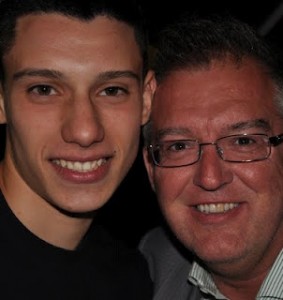 Your footballers have been making their mark with major international teams, too. My friend, Uroš Ćosić,who plays for Red Star Belgrade and the Serbian U19 squad, is an excellent example of young talent that is being developed on home turf and already attracting international interest. You only have to look at what Red Star’s excellent youth training programme did for Nemanja Vidić to see what they can achieve for their young stars. Another Serb friend, Milinko Dragović, is goalkeeper for FK Borac Banja Lukabut his talent has been recognised and he has secured a career-making transfer to Germany’s Karlsruhe.
Your footballers have been making their mark with major international teams, too. My friend, Uroš Ćosić,who plays for Red Star Belgrade and the Serbian U19 squad, is an excellent example of young talent that is being developed on home turf and already attracting international interest. You only have to look at what Red Star’s excellent youth training programme did for Nemanja Vidić to see what they can achieve for their young stars. Another Serb friend, Milinko Dragović, is goalkeeper for FK Borac Banja Lukabut his talent has been recognised and he has secured a career-making transfer to Germany’s Karlsruhe.
In the last few years I have been working with some of the region’s top DJs, helping them to raise their profile and expand their reach internationally. We have brought DJs from Banja Luka (Siniša Tamamović and Mladen Tomić) and Belgrade to play at well known clubs and music festivals in London. When I was in Belgrade a few weeks ago I spent an incredible day in the studio with Marko Nastić, who is rightly seen as Serbia’s best DJ with the most complete body of work known to an international audience. Listening to his new material, the best is still to come.
The effect this has on Serbia’s global image should not be underestimated. Sports stars and musicians can be excellent ambassadors, showing a positive and creative face of Serbia. ‘Brand Serbia’ was in need of a significant relaunch: these people are a great place to start.
WM: Has the attitude of people from Great Britain towards Serbia changed in the last ten years? What is it that forms the British public opinion about Serbia nowadays?
WR: With my blog, I want to show people in the UK and around the world what Serbia has to offer and its readership is growing by the day. It can be a slow process to change people’s ingrained opinions but there are signs that the message is getting through. I receive a lot emails from many countries congratulating me on raising the curtain on new aspects of a country they thought they already knew.
After the situation in the former Yugoslavia had dominated headlines in the nineties, the media moved on to other hotspots in the world and people’s perception of the region remained dominated by the troubles for years. There wasn’t anything tangible coming out of the region to counter that impression, provide balance. This is changing as Serbia is now grabbing the headlines for more positive reasons, such as sports, culture and music, some of which I mentioned earlier. For example, people in the UK know the region for its excellent techno DJs and party scene, and BBC World recently produced a feature on Strawberry Energy.
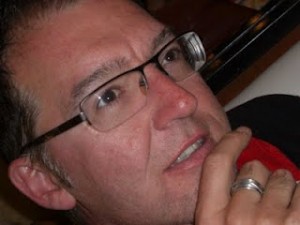 The smoke has cleared a lot in the past years and people recognise that certain individuals were the cause of any problems, not the country as a whole. They also see that there were faults on all sides, nobody came out of that period with a clean face.
The smoke has cleared a lot in the past years and people recognise that certain individuals were the cause of any problems, not the country as a whole. They also see that there were faults on all sides, nobody came out of that period with a clean face.
We also should not forget that before the nineties, people in the UK and Europe had a very positive view of Yugoslavia and that belief has not been completely eroded.
Belgrade has always been considered a cosmopolitan and cultured city since the days of thefin de siècle, while at the same time it was seen as an exotic place at the heart of Europe.
Historically, the Serbian nation was always perceived as a proud people defending their freedom and that of others. I guess this is also something of a legacy of the communist era, although this positive view goes back further than that. We partly fought World War One to protect the country against German and Austrian expansionism at the time. People in the UK also have a strong impression of the heroic stand of the Serb people against Stalin during the cold war. So these are also lasting images that resound with people have in the UK, not just impressions of recent troubles.
Increasingly, British businesses are looking to Serbia as a viable investment opportunity, as a place where they can do business. This can only be good for Serbia and the wider region, not only in creating badly needed new jobs but by restoring the trading value of Serbia.
WM: Would you say that you have truly got to know Serbia?
WR: I definitely would not claim to truly know Serbia, but I would say that I have made a good start. The more people I know, the better I will understand their lives, their culture and the things that matter to them. Of course, I read history books and cultural studies but I learn a lot of greater relevance to me by talking with my Serbian friends.
The region has some complex issues and, unless you hear about these from the horse’s mouth, it can be a lot to get your head around. By engaging with people in Serbia and the wider region in the past five years, I believe that I have moved a long way down that path.
I know Serbia well enough to have an appetite to find out more. I intend to spend more time in Serbia, so it is only natural that I would invest my time and energy in learning as much as possible about the lives, loves and concerns of my friends here.
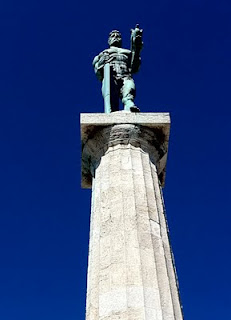 Obviously, I was well aware of the issues in the 1990s and closely followed news reports at the time. Since then, I have read widely on the problems of that period. Coupled with what I have learned from friends, this has armed me with a fresh perspective on issues affecting the region. That helps me address some of the issues in my blog, not by directly correcting any misconceptions or righting any apparent wrongs, but by highlighting the new positives.
Obviously, I was well aware of the issues in the 1990s and closely followed news reports at the time. Since then, I have read widely on the problems of that period. Coupled with what I have learned from friends, this has armed me with a fresh perspective on issues affecting the region. That helps me address some of the issues in my blog, not by directly correcting any misconceptions or righting any apparent wrongs, but by highlighting the new positives.
Last year, I went as far as to take Serbian language classes at the University College London. It started well and I had the best intentions but, to be honest, my efforts were crippled by a failure to grasp the grammar. I will give it another try and I have a private teacher lined up. Until then, I’ll have to make do with the rudimentary skills I have already picked up.
I’m perfectly at ease ordering in restaurants or shops and, what has struck me, is the look of shock and appreciation I get when I dare to speak Serbian. I think people are still quite surprised that an Englishman would make the effort to learn their language, so they treat me especially well after that. That’s a great confidence boost and it drives me on to tackle the language again.
My limited range has left me lacking the confidence to speak Serbian in front of friends. I was at my first orthodox wedding recently and when I was introduced to the bridegroom’s parents, I proudly greeted them with ‘drago mi je’. My friend was so taken aback at hearing my first words in Serbian – and spoken to his parents of all people. I think he was quite proud actually.
WM: It is an honour that you liked our magazine and dedicated it an article on your blog. We are also looking forward to having you as a part of the WM team. How did you decide to write for us and what will you write about?
WR: I have been writing for British newspapers, magazines and broadcast media for many years. As an international communications consultant, I have represented well-known music and film personalities, major high street brands and global events.
Wannabe is a great place for me to share personal insights and opinions on my experiences in Serbia. I will be writing a series of observational features for Wannabe, looking at the ordinary things in Serbia that are really quite extraordinary. Sometimes it takes an outsider to see what’s at the end of our nose.
It is also a great honour and at the same exciting or me to work with a cosmopolitan group of creative young people, who are right at the heart of what is happening in this part of the world. I am really looking forward to what we can achieve together.
WM: Will you visit Belgrade soon?
WR: I will return to Belgrade in August and October. I intend to be back every few months, for sure. Now that I am writing for Wannabe, I will need to be back as much as possible, anyway. We are thinking of coming back to celebrate New Year again, too – if we can brave the snow!
(with thanks to Lazar Stojković and Uroš Pajović at Wannabe Magazine. Original Serbian version available here)



No comments yet.
Be first to leave your comment!